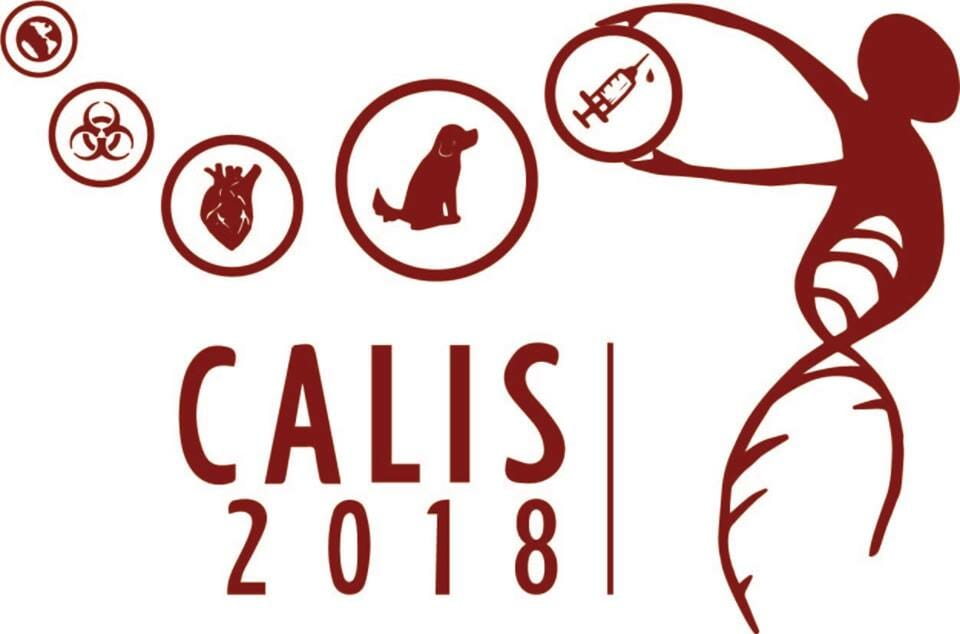Universitetsavisen
Nørregade 10
1165 København K
Tlf: 21 17 95 65 (man-fre kl. 9-15)
E-mail: uni-avis@adm.ku.dk
Foredrag
Foredrag — CALIS symposium 2018 The recent Ebola and Zika outbreaks showed that epidemic diseases still remain a grave threat to world health. When Ebola struck the global community was not prepared. Potential vaccines existed but critically they had not yet been proven safe which delayed assessment of their effectiveness to protect against the disease. Many more diseases exist which are known epidemic threats but for which we do not have vaccines. If history has taught us anything, it is that diseases do not respect a country’s borders. So do we face the same diseases as developing countries do? Now is our chance to learn from the past and work together to prevent future epidemic tragedy. To tackle these challenges, we need people with different educations and insights, to work together towards the common goals and protect both man and animal. Motivated by this, CALIS ONCE AGAIN invites life science students to an interdisciplinary symposium. This day will be dedicated to learning about epidemics, what developing countries struggle with as opposed to what developed countries face. More specifically this year’s symposium will focus on two major epidemic threats namely rabies and obesity. With the help of leading Danish researchers, we will acquire new knowledge and inspiration to tackle epidemic threats in humans as well as animals and additionally how best to monitor diseases and prepare for future outbreaks.
Date & Time:
Place:
Bülowsvej 17, 1870 Frederiksberg
Hosted by:
CALIS (Collaborative Association of Life and Science students)
Cost:
50 DKK
INTRODUCTION
The recent Ebola and Zika outbreaks showed that epidemic diseases still remain a grave threat to world health. When Ebola struck the global community was not prepared. Potential vaccines existed but critically they had not yet been proven safe which delayed assessment of their effectiveness to protect against the disease. Many more diseases exist which are known epidemic threats but for which we do not have vaccines.
If history has taught us anything, it is that diseases do not respect a country’s borders. So do we face the same diseases as developing countries do? Now is our chance to learn from the past and work together to prevent future epidemic tragedy. To tackle these challenges, we need people with different educations and insights, to work together towards the common goals and protect both man and animal.
Motivated by this, CALIS ONCE AGAIN invites life science students to an interdisciplinary symposium. This day will be dedicated to learning about epidemics, what developing countries struggle with as opposed to what developed countries face. More specifically this year’s symposium will focus on two major epidemic threats namely rabies and obesity.
With the help of leading Danish researchers, we will acquire new knowledge and inspiration to tackle epidemic threats in humans as well as animals and additionally how best to monitor diseases and prepare for future outbreaks.
PROGRAM
9.30-10.00:
Registration, coffee and pastry.
10.00-10.20:
An overview of the days program will be given by CALIS’ chairman and vice chairman, followed by this year’s introductory speech which will be given by former disease detective at the American CDC Lone Simonsen PhD, Research Professor and Research Director, Department of Global Health, George Washington University – A Century of Pandemics and Pandemic Threats — and What is Disease X Anyway?
10.20-10.50:
First lecture – Rabies: Human Transmission & Medical Countermeasures – Chief Physician Peter Ellekvist, Specialist in Infectious Medicine, Herlev Hospital.
10.50-11.20:
Second lecture – Rabies: The Human Animal Interface – Rabies researcher Thomas Bruun Rasmussen, M.Sc., PhD, Division of Diagnostics & Scientific Advice – Virology, DTU-Technical University of Denmark.
11.20-11.30:
Coffee break.
11.30-12.00:
Third lecture – Rabies: Disease Control & Public Health Potential
12.00-13.00:
Lunch.
13.00-13:40:
Fourth lecture – Obesity: Human “Transmission”, Medical Countermeasures & The Puzzles of Obesity.
Professor, Thorkild I. A. Sørensen Dr.Med.Sci., Dr.H.C, Metabolic Epidemiology, Novo Nordisk Foundation Center for Basic Metabolic Research, University of Copenhagen.
13.40-14.10:
Fifth lecture – Obesity: The Microbiome and Obesity, What’s All the Fuss About? – Assistant Professor Manimozhiyan Arumugam, BA. Tech. Biotechnology, M.S. Computer Science, Ph.D. Computational Biology, Novo Nordisk Foundation Center for Basic Metabolic Research, University of Copenhagen.
14.10-14.30:
Coffee break and cake.
14.30-15.00:
Sixth lecture Obesity: The Human Animal Interface Post Doc Ida Nordang Kieler Dr.med.vet, Internal Medicine, Clinical Oncology and Veterinary Clinical Pathology, University of Copenhagen.
15.00: Closing and drinks.
– – – – – – – – – – – – – – – – – – – – – – – – – – – – – – – – – – – –
PRACTIAL INFORMATION
The symposium will take place at Festauditoriet (A1-01.01), Frederiksberg Campus (Bülowsvej 17, Frederiksberg) on May the 12th 2018 at 09.30 to 15.00.
Participation is 50 DKK and includes meals and refreshments during the day as well as a CALIS goodiebag. After the symposium there will be drinks and further refreshments, first drink is on us!
Registration will be open until May the 8th. You will be able to purchase your tickets through billetfix.dk (https://billetfix.dk/da/calis-symposium-2018-epidemics-developing-versus-developed-countries-1/). For any dietary requirements or further questions, please write to us on our CALIS facebook site or send us an email at stud.calis@gmail.com.
We look forward to seeing you all!
